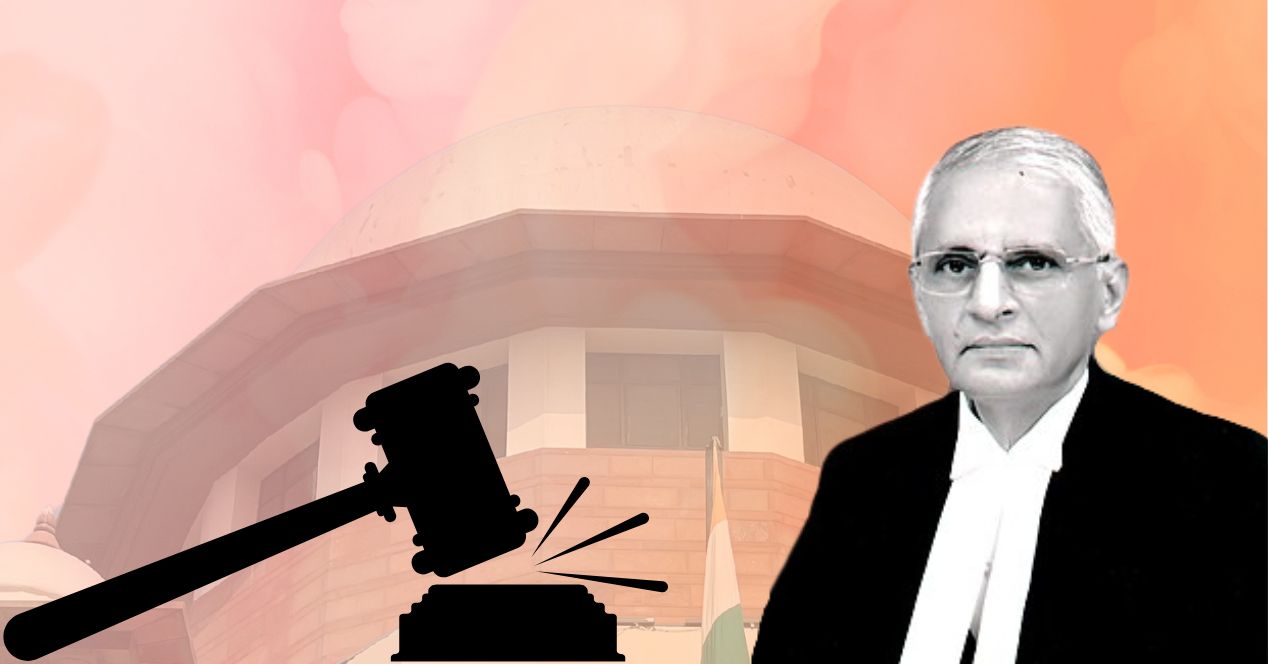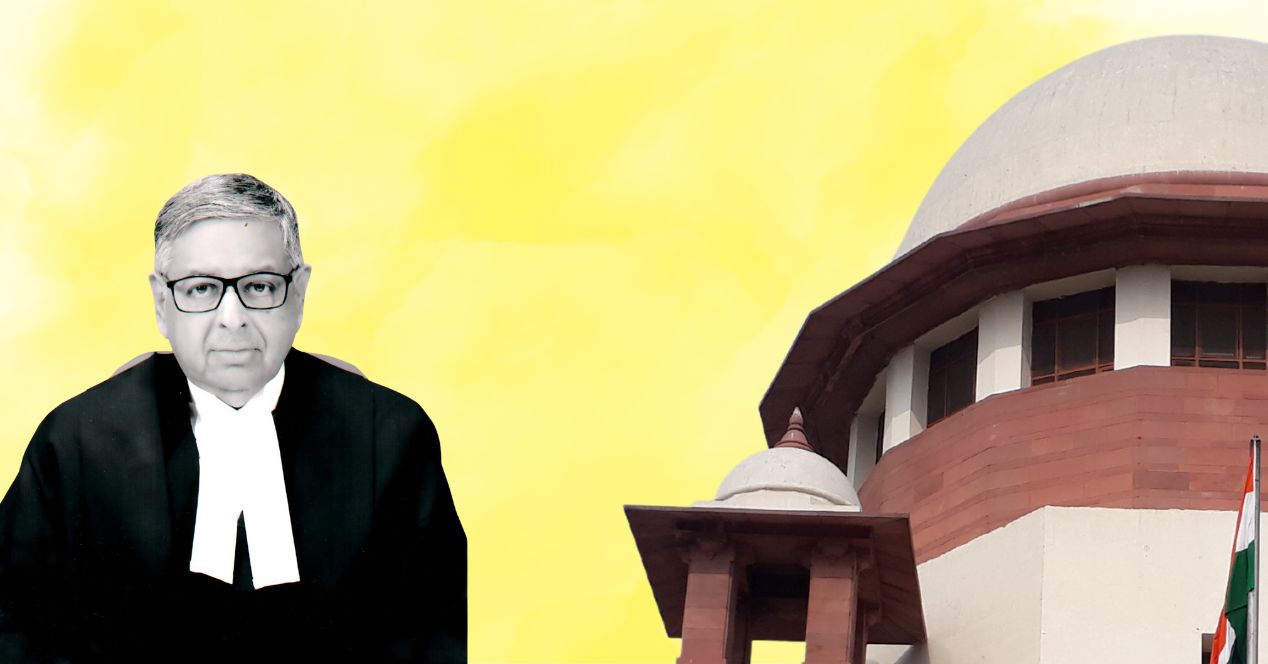Analysis
Justice C.T. Ravikumar’s Notable Judgements
From Jalikattu to the law surrounding anticipatory bail, Justice Ravikumar’s three-year-long tenure at the top court deserves a long look

Justice Chudalayil Thevil Ravikumar retired on 5 January 2025 after three years and four months at the Supreme Court. With Justice Ravikumar’s retirement, Justices B.R. Gavai and P.B. Varale are now the only sitting judges from a Dalit community.
He was the 15th judge from Kerala to be elevated to the top court. During his tenure, he authored 99 judgements and served on 373 benches*.
Justice Ravikumar was part of key Constitution Bench matters. These include the revision of guidelines for passive euthanasia and the constitutionality of Jallikattu and other bull-taming sports.
More recently, Justice Ravikumar was part of the three-judge Division Bench in the Vijay Madanlal Choudhary v Union of India (2022) which upheld the wide investigative powers of the Enforcement Directorate and the restrictive bail conditions under the Prevention of Money Laundering Act, 2002. He was the only judge from the original bench to be part of the three-judge bench hearing the pending review against the 2022 judgement.
In this article, we list Justice Ravikumar’s notable judgements in the Supreme Court. These include: defining the scope of anticipatory bails, his observations on investigative lapses in criminal trials based on circumstantial evidence and his concurring opinion rendering unstamped arbitration agreements void, which was later reversed by a seven-judge bench.
“Bail is a rule” does not apply to anticipatory bail
In Srikant Upadhyay v State of Bihar (2024), Justice Ravikumar, heading a Division Bench, ruled that while bail is the general principle in criminal cases, this does not extend to anticipatory bail. The power to grant anticipatory bail, he held, was an exceptional power which could be used as a matter of course. The bench was hearing an appeal against a Patna High Court decision that denied anticipatory bail to an individual accused of assaulting a woman.
The primary issue for consideration was whether there could be any bar on the Trial Court for proceeding under Section 82 of the Code of Criminal Procedure, 1973 merely because an anticipatory bail had been filed or because such an application was adjourned without passing an interim order. Section 82 CrPC empowers a court to proclaim an absconding accused and, for grave offenses, declare them a proclaimed offender upon non-compliance. The bench, while answering in the negative, observed that accepting such a position would be a “ruse to escape” from the impact and consequences of a warrant of arrest and the proclamation under Section 82 of the CrPC by filing successive applications for anticipatory bail.
While writing for himself and Justice Sanjay Kumar, he emphasised that the grant of anticipatory bail should be determined by the court’s “cautious and judicious discretion,” based on the specific facts and circumstances of each case. Upholding the High Court’s judgement, the Supreme Court declined to grant anticipatory bail.
Circumstantial evidence can stand despite lapse in investigation
In Veerendra v State of M.P. (2022), a three-judge bench comprising Justices A. M. Khanwilkar, Dinesh Maheshwari and Ravikumar were hearing criminal appeals against the conviction and death sentence of the accused-appellant in the gruesome rape and murder of an eight-year-old girl.
In the majority judgement authored by Justice Ravikumar, the Court upheld the conviction of the appellant by the Trial Court and the High Court despite a lapse in carrying out DNA profiling under Section 53-A of the CrPC. Section 53A of the Code of Criminal Procedure mandates the medical examination of a person accused of rape or attempted rape to gather evidence, including details like injuries and materials for DNA profiling, with the report promptly submitted to the investigating officer.
The judgement reasoned that even if a flaw or lapse had occurred in the investigation such as not conducting DNA profiling, the Court still has a duty to consider whether the materials and evidence available on record before it is “enough” and “cogent” to prove the case of the prosecution.
The Court also made important observations on the death penalty in the case. While converting the death sentence to life imprisonment with a minimum non-remittable term of imprisonment, the bench reiterated the principles of the “criminal test” and “rarest of rare” doctrine. Justice Ravikumar observed that aggravating and mitigating circumstances must be considered before awarding a death sentence to an accused.
Validity of an unstamped arbitration agreement
In N.N. Global Mercantile v Indo Unique Flame Ltd. (2023), a five-judge Constitution Bench led by Justice K.M. Joseph had held that an unstamped arbitration agreement was invalid in a 3:2 ratio. Justice Ravikumar authored a concurring opinion in the case.
He observed that under Section 11(6A) of the Arbitration Act, the Supreme Court must ascertain the ‘existence’ of an arbitration agreement. To do so, the arbitration agreement must be admissible as evidence for which it requires the payment of stamp duty.
The majority opinion was however overruled in a curative petition by a seven-judge bench led by former Chief Justice D.Y. Chandrachud which conclusively held that an unstamped arbitration agreement was not void from the beginning.
Challenge to the practice of Jallikattu
On 18 May 2023, Justice Ravikumar was part of the five-judge Constitution Bench which unanimously upheld bull-taming practices such as Jallikattu, Kambala, and Bailgada Sharyat. The decision overruled Animal Welfare Board of India v A. Nagaraja (2014), which had banned these practices. Following the ban, the states of Tamil Nadu, Karnataka, and Maharashtra amended the Prevention of Cruelty to Animals Act, 1960 (PCA), to reintroduce these practices.
The bench noted that Sections 3 and 11 of the PCA penalise acts causing “unnecessary pain and suffering” and “cruelty” to animals. It was observed that the states’ amendments to the PCA aimed to reduce the pain, suffering, and cruelty endured by the bulls.
The bench, however, refrained from addressing whether practices like Jallikattu qualify as “cultural practices” under Article 29 of the Constitution, stating that such determinations fall within the legislative domain. For more details, read our summary of the judgment here.
Ajitesh is an intern at the Supreme Court Observer for the month of January 2025.
*data collected on 8 January 2025




